Skater girls: Gender, joy and slow photography
- Published
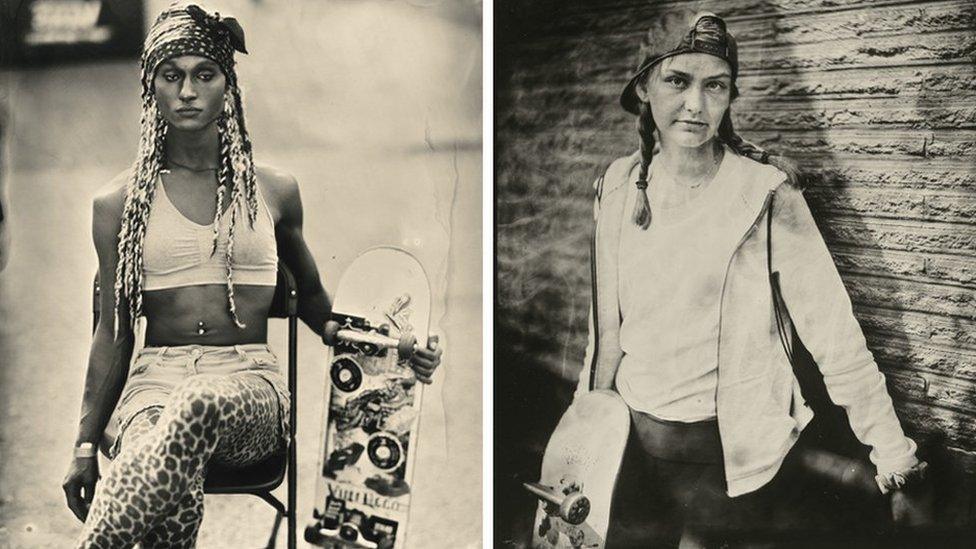
Jasmine and Amelia
In 2017, noticing there was an unusually large number of female skateboarders in Emeryville skate park, in northern California, Jenny Sampson asked if she could photograph some of them.
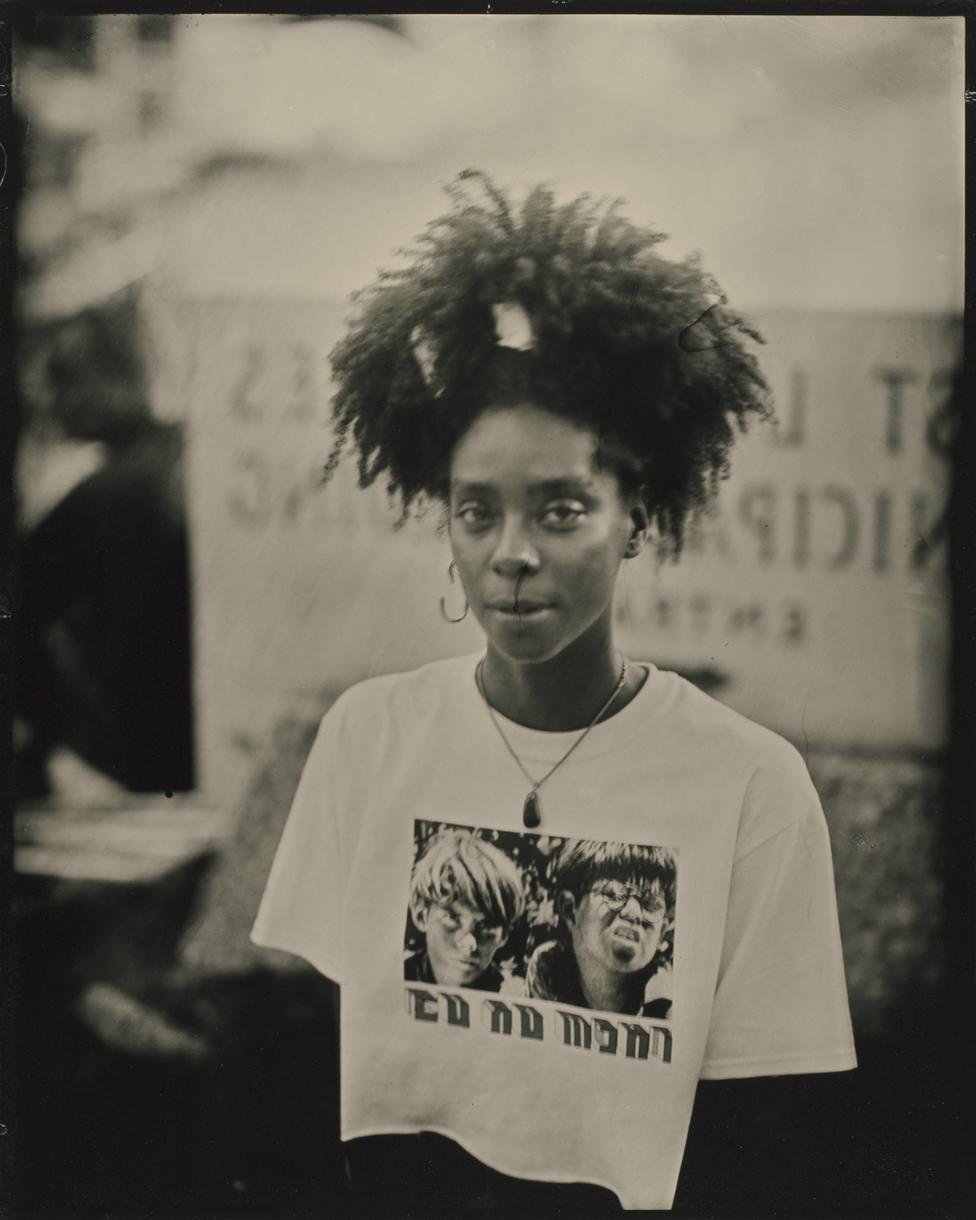
Briana

She soon discovered the organisation Skate Like a Girl and attended one of their events.
"There, I discovered a whole new world, to me," Sampson says.
"Girl skaters abounded."
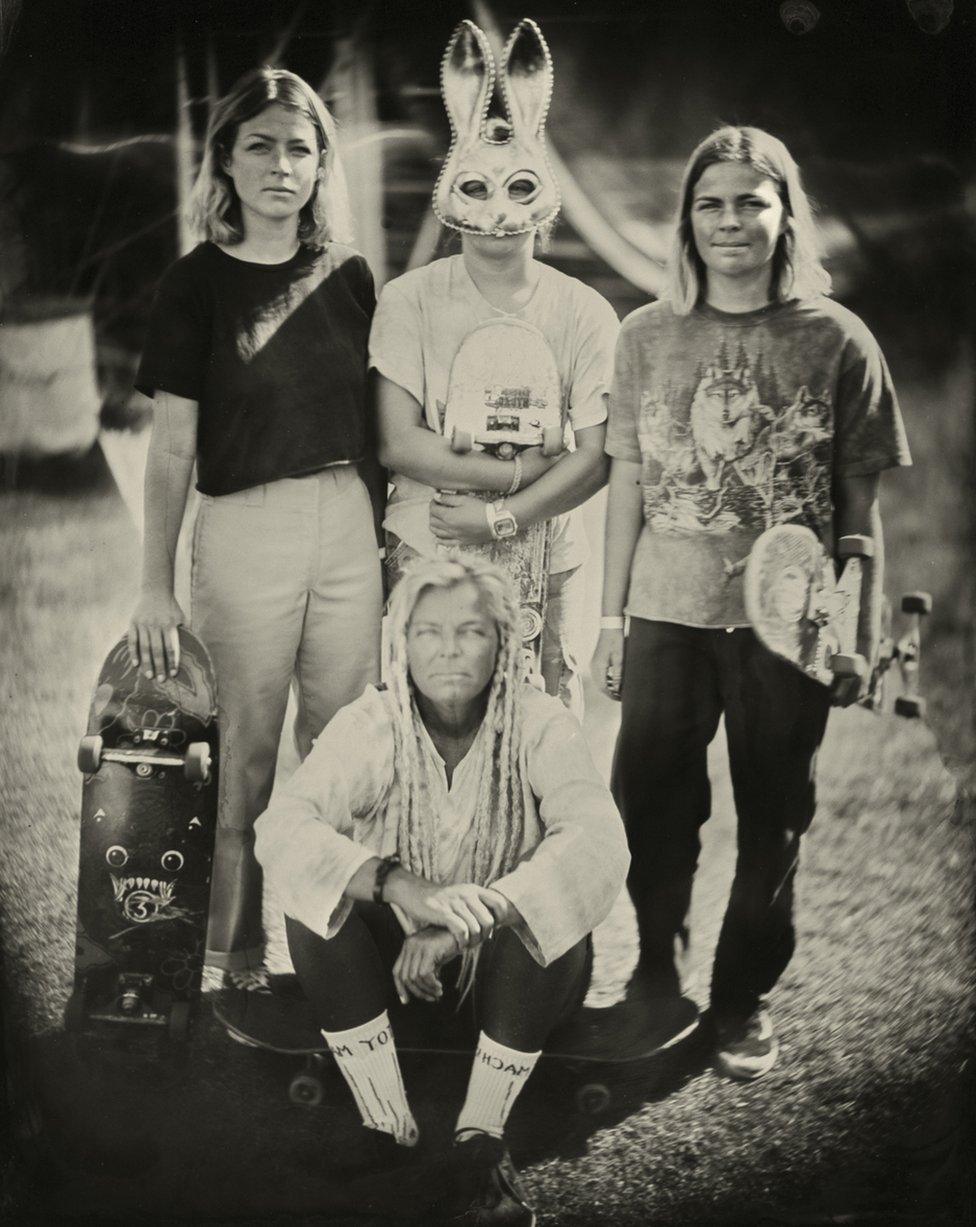
Carly, Samantha, Tabitha and Encinitas

Three years later, having visited skate parks and events across California, Washington and Oregon, Sampson is releasing Skater Girls, a book of portraits of female and non-binary skateboarders, made using wet-plate collodion, a technique invented in 1851.
A solution is applied to a thin metal plate, in a portable darkroom, which is then loaded into the camera still wet.
The process requires long exposure times and for the subject to remain perfectly still.
And because they are not produced from a negative, the resulting tintype portraits appear as reversed images.
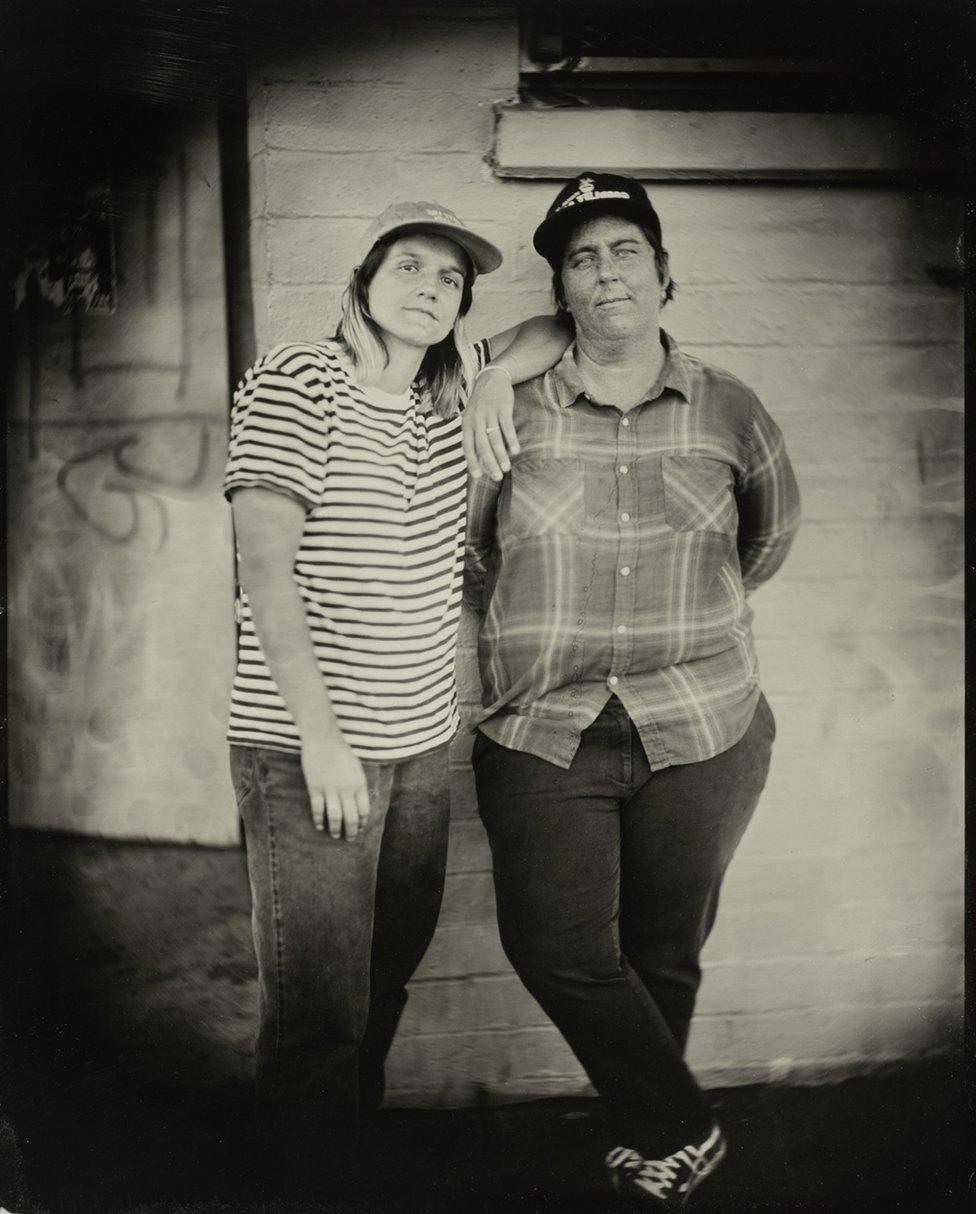
Kristen and Holly

"There is a connection that takes place when I photograph them using the slow photographic process," Sampson says.
"The photographic practice requires patience, interaction and collaboration.
"And it mirrors the inclusive landscape in which these photographs are made.
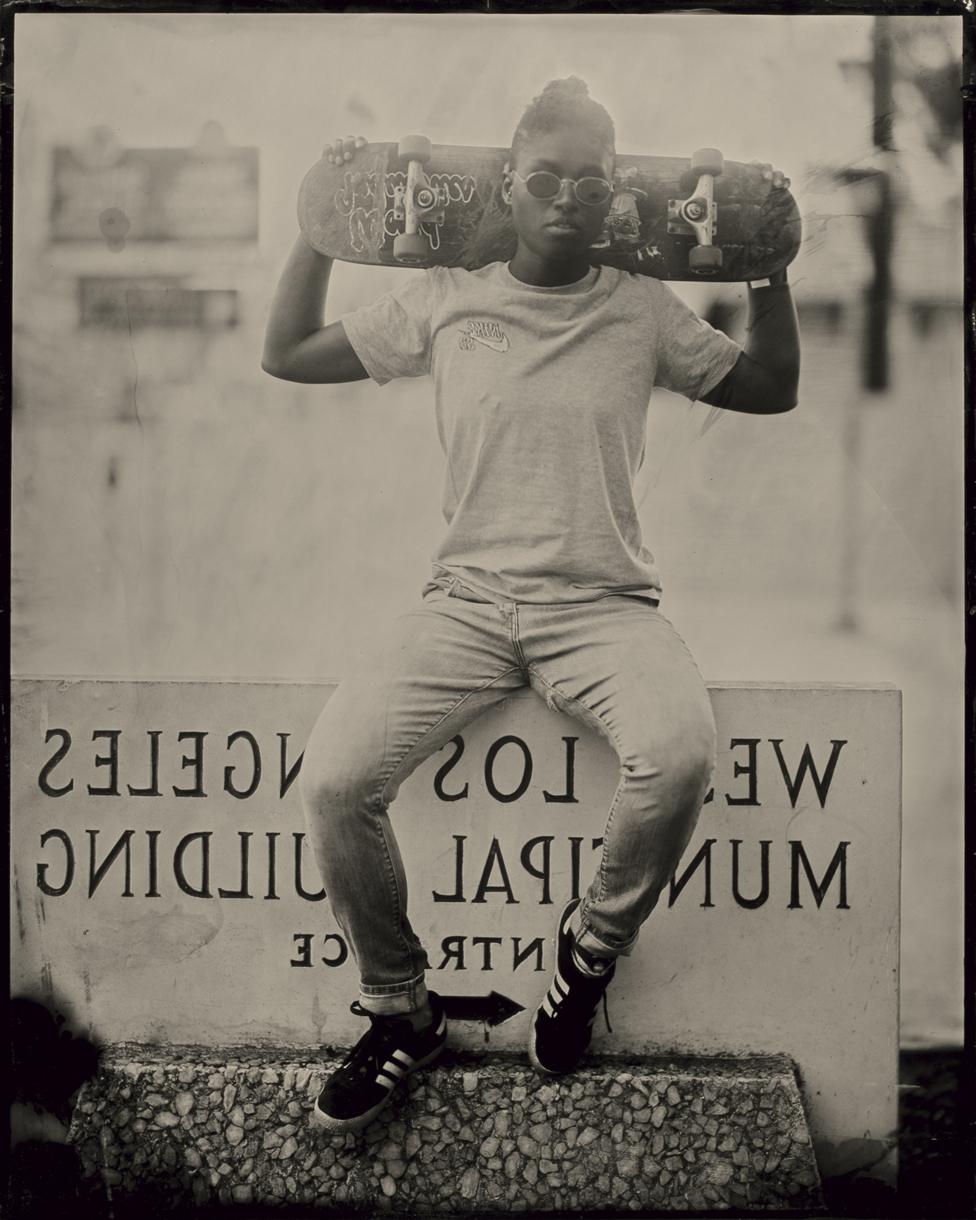
Kandice

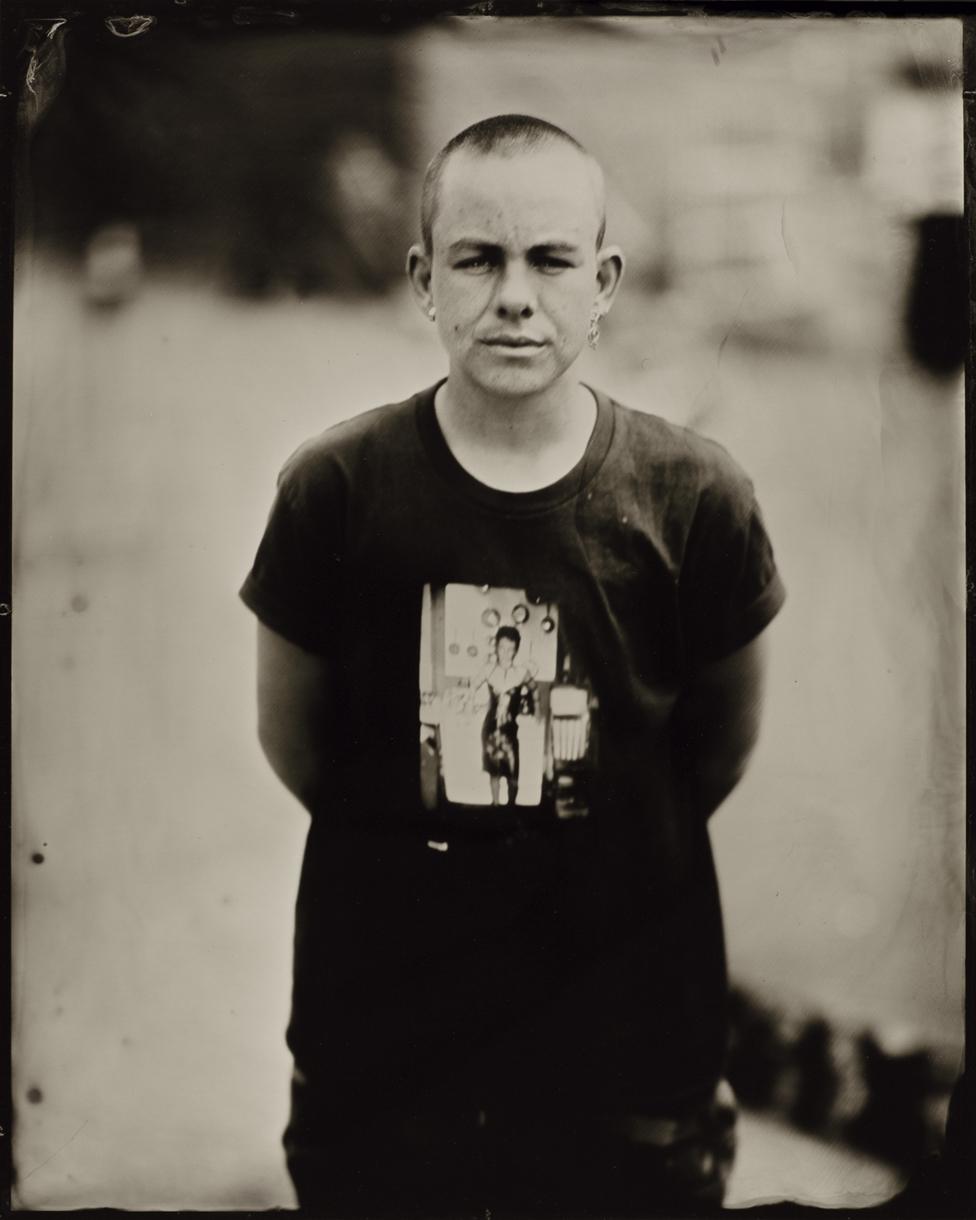
Leo

"Ultimately, despite the contemporary subject matter and modern details, we see a unique honesty and are struck by the strength and determination of these skaters.
"They are purposeful and courageous, open, playful and supportive.
"I admire their respectful and shrewd fight for a place in the world."
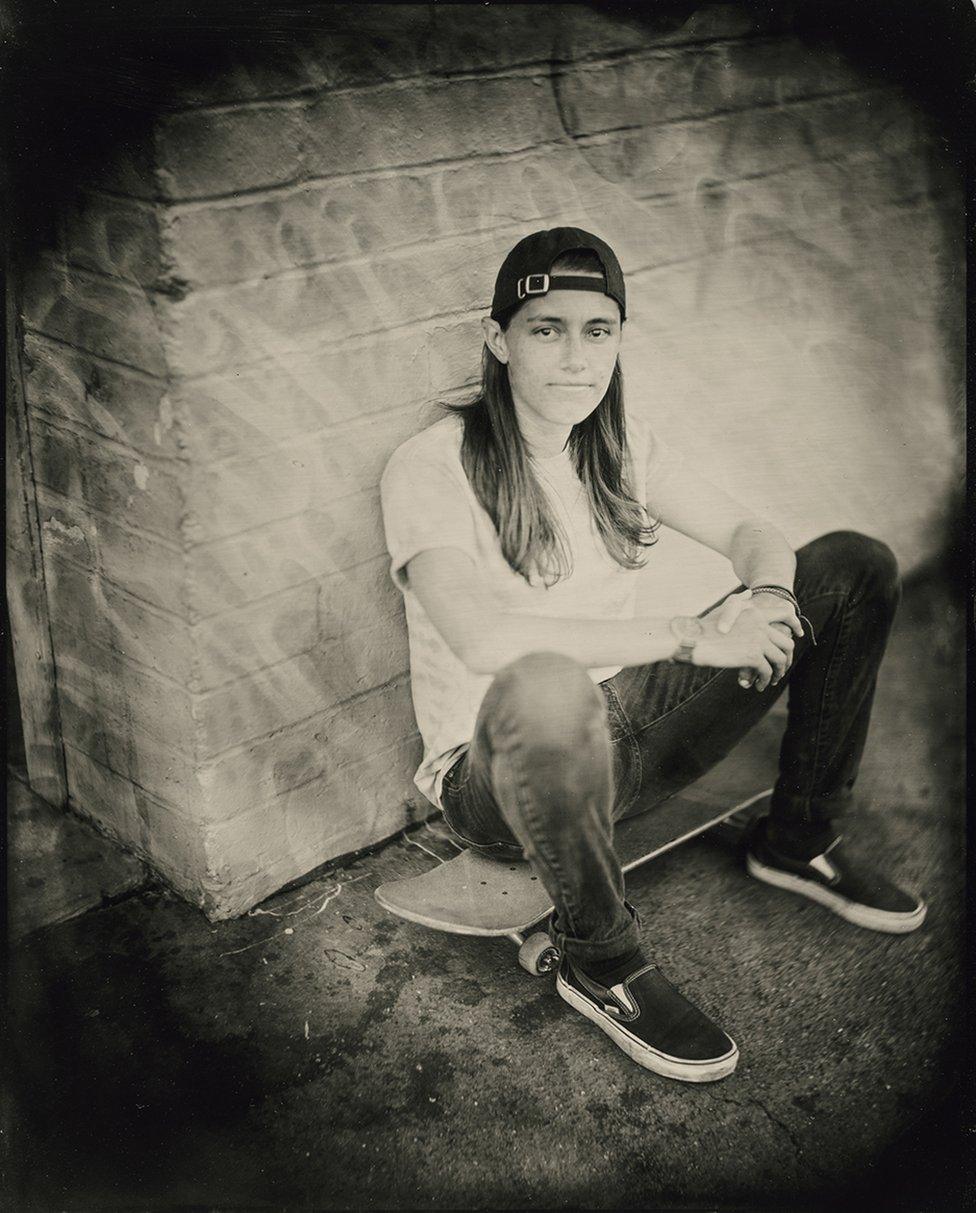
Lucia

In her foreword to Skater Girls, Dr Becky Beal, a professor of kinesiology at California State University East Bay, says: "Jenny Sampson's collection of portraits encourages us to re-examine our assumptions of who is a skateboarder, by acknowledging the variety of gender expressions that are cultivated in and articulated through skateboarding.
"I find Sampson's photos powerful in their representation of women as complex and confident.
"And I find them joyful because of the wide-ranging forms of skateboarder identity being supported in these communities.
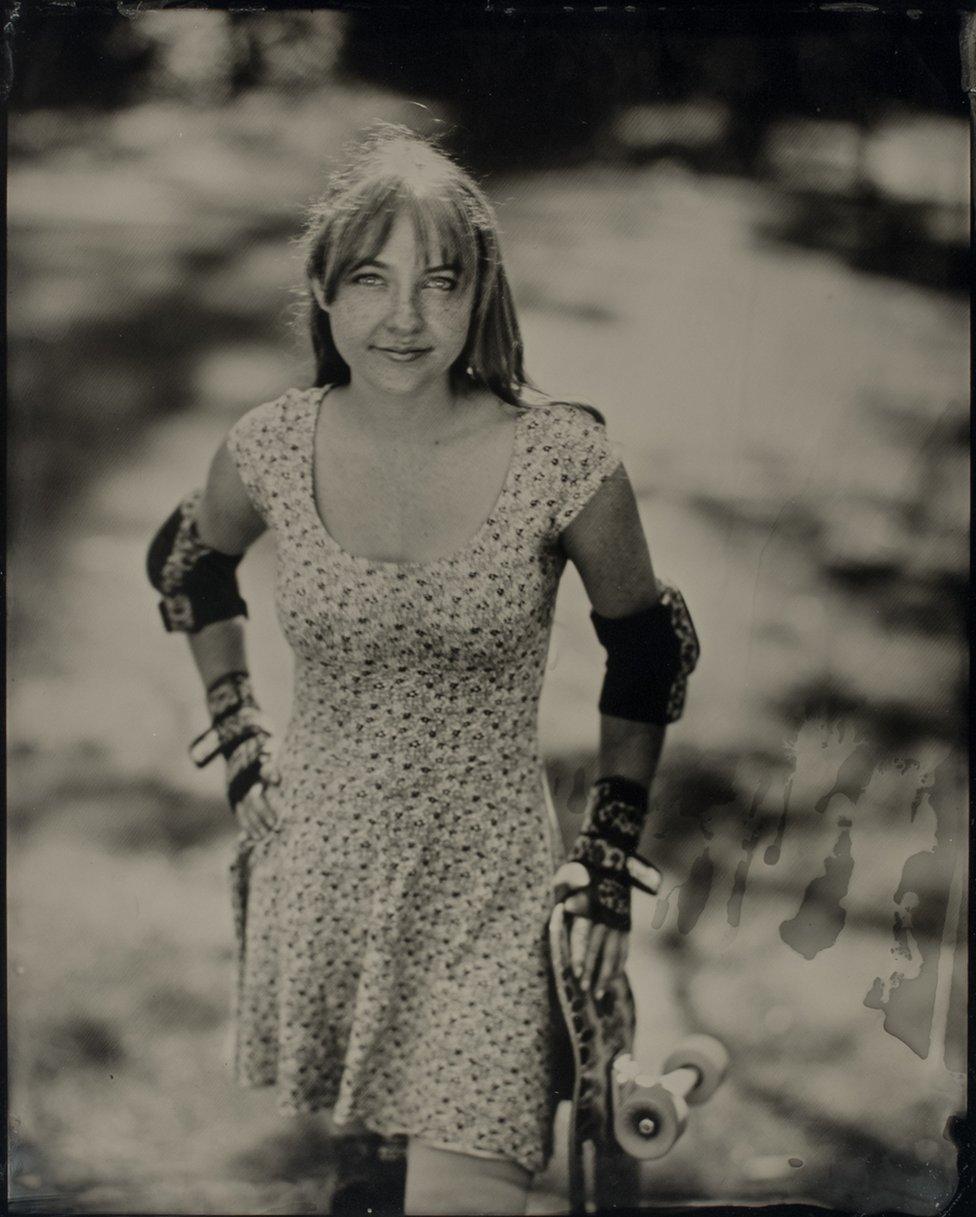
Ohmala

"Sampson's collection celebrates skateboarding while simultaneously challenging traditional narratives of 'authenticity', extending the notion of what it means to be a skateboarder."
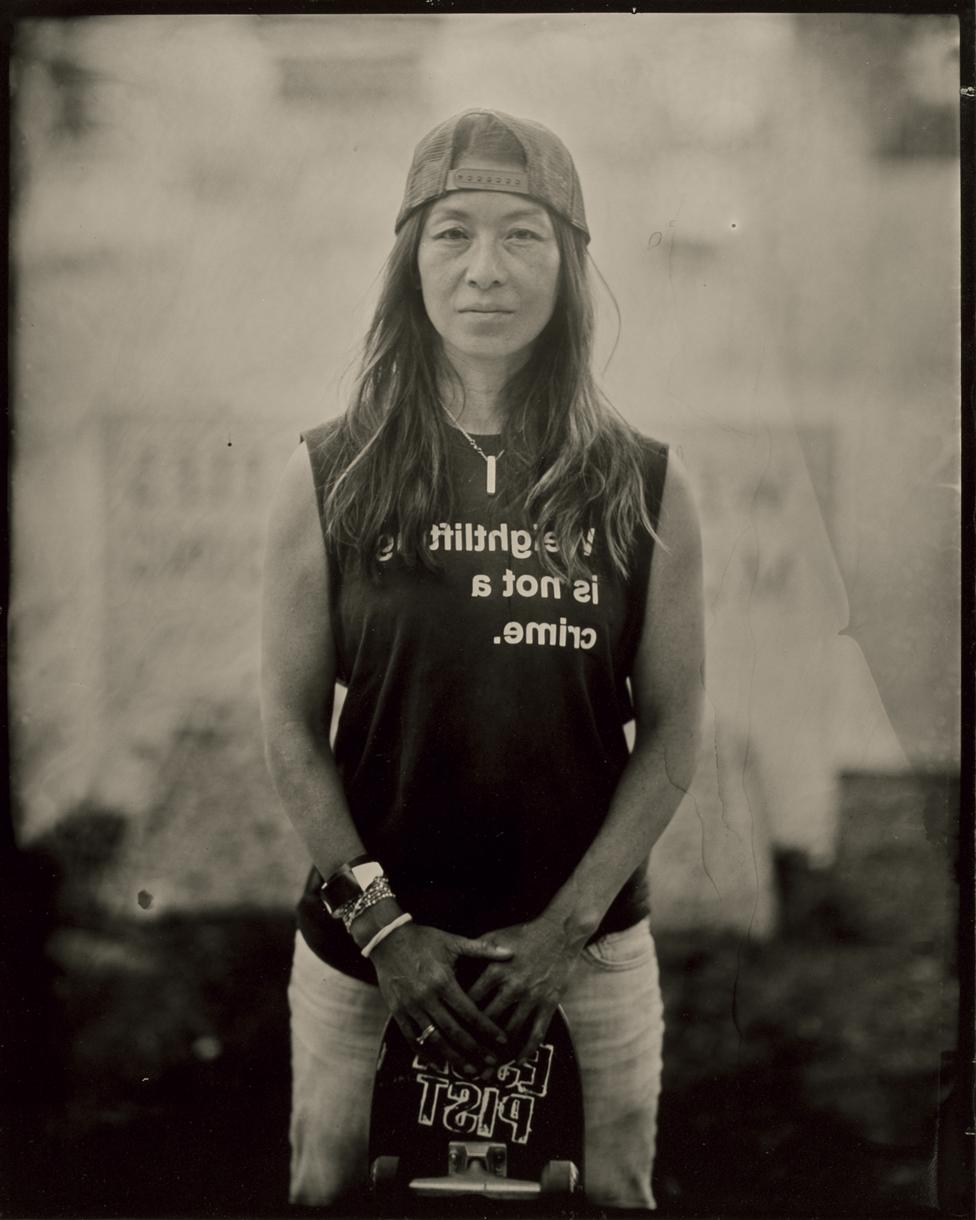
Yulin

Jenny Sampson's, external Skater Girls is published by Daylight.